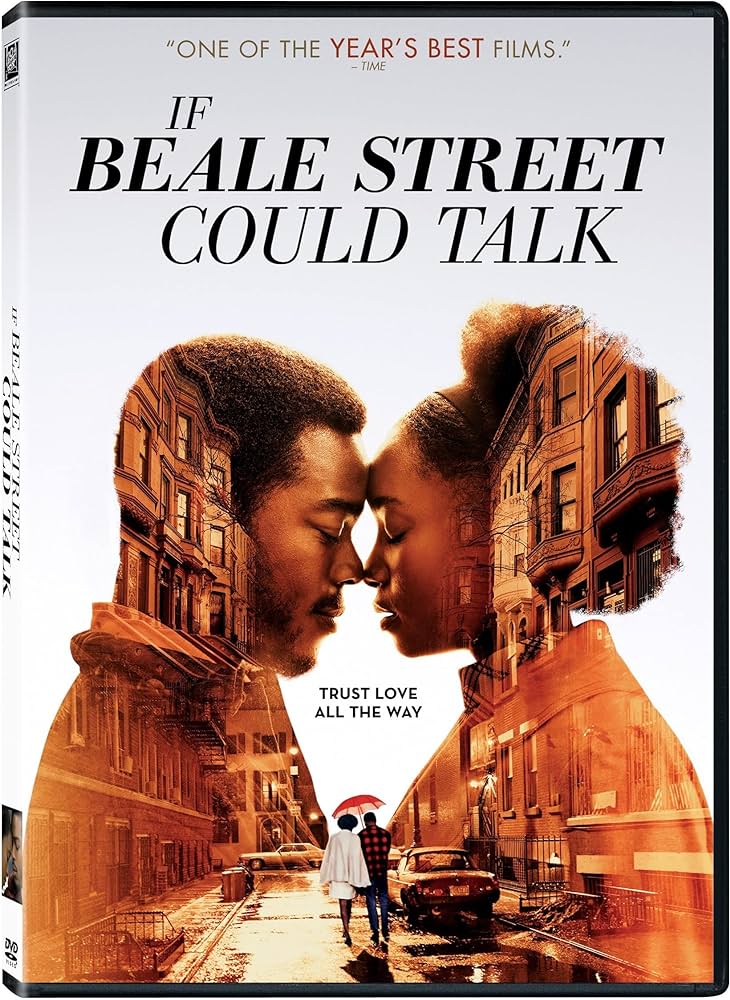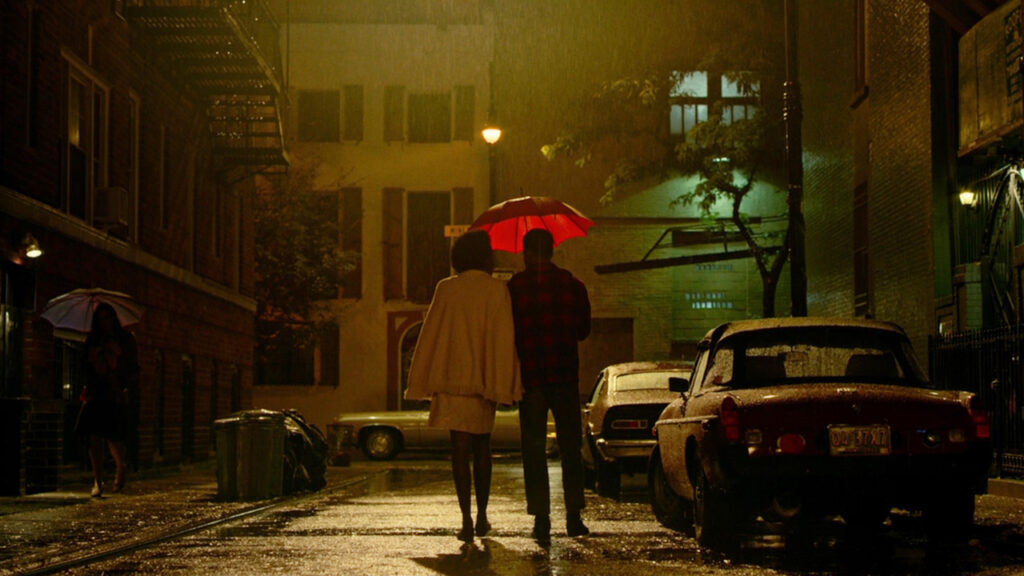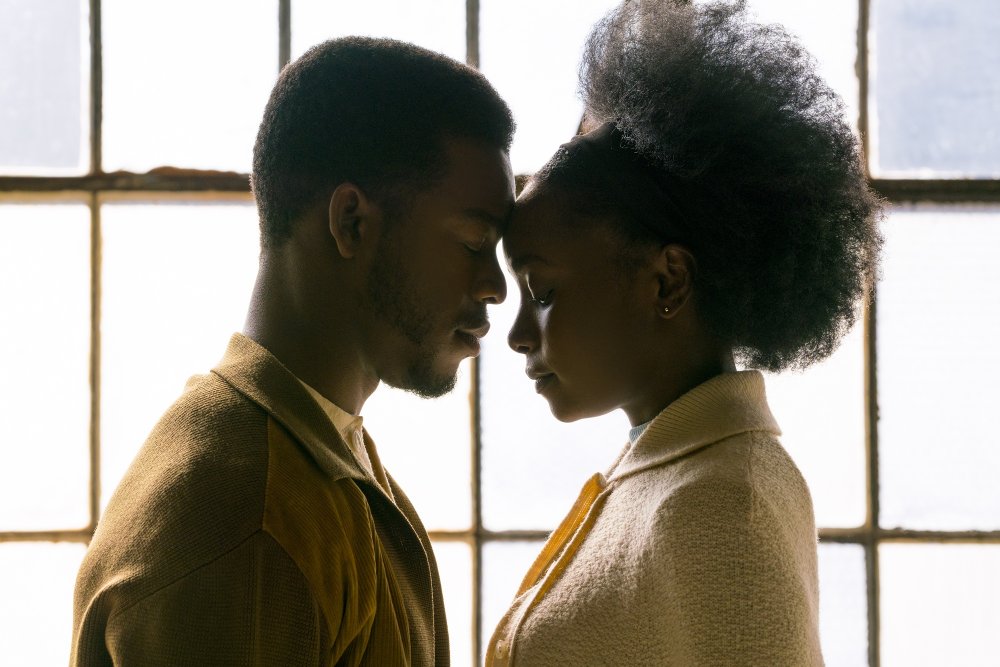If Beale Street Could Talk (2018) is a film that follows a pregnant woman, Tish, and her artist fiancé, Fonny, who was imprisoned for a crime he did not commit in the 1970s. The movie is based on Beale Street in New Orleans, Louisiana and New York City, New York. It trails the couple, who have been best friends since birth, and their trials dealing with many issues facing Black Americans.


In this film, they bounce between three different locations: New Orleans, Louisiana; New York City, New York; and Puerto Rico. Place in their lives matters because they are both Black Americans living in America, which means they were experiencing a lot of racial discrimination, setbacks, and hostility just for their skin color. There were not opportunities, there was challenges because of thier skin color. Due to them being black they were experiencing extreme difficulty with getting housing. Due to them being black they were experiencing the same tale many black families have gone through; the male leader and financial supporter of the family gets imprisoned for either a crime they didn’t commit or a very minor crime paired with a long sentence. Their families were both low income because at that point, black people had only been freed from slavery for a little over a hundred years and the Civil Rights Movement was still ongoing.
This movie hits specifically on one of the harshest power dynamics in America — white people over black people. The white officer who had a vendetta against Fonny was purposely sabotaging his case and getting away with it. The white lawyer was starting to get tired of their case because of the stigma that follows him. All of the white property owners wouldn’t rent to them no matter how hard they tried. The only positive experience with a person that is non-black in this movie is a white Jewish man who was the only property owner that would rent to them.
The portrayal of these character and environments (all of whom are based on real life events) is very accurate to what is commonly known as the “White Woman Who Cried Wolf” effect. Its a known term in the black community. For the most part white women, especially in the 1900s, would often falsely accuse black men of crimes they didn’t do, leading to the horrific deaths and imprisonment of many innocent black men. Sometimes, the white women in these events can simply be puppets of the more powerful white men in their lives. In this movie, the woman who falsely accuses Fonny is not white, however, she is still a puppet of a more powerful white man with a vendetta against black people (the officer). The other societal issues they touch on such as access to housing and having to do illegal things to get a lot of money quickly are all very accurate and real things that happen. This movie is based on a true story, so there is not much of a debate on whether or not is reflects real world social dynamics and behaviors.

This film was a very great film that touches on a lot of issues that my family has suffered from and people I know have suffered from. It’s not exaggerated in the slightest. The only thing that got me was exactly where each shot was taken place, they started out in New Orleans but randomly switched over to New York with little to no explanation. Although black people everywhere experience these same discrimination cases, it would have been nice to have the clarification.
This story resonated with me in a way that it reminded me of my family and my father. During the family scenes, I was brought back to Arkansas and our family whispering around the dinner table about all the people they grew up with and what happened to them. This movie specifically influenced my understanding of our culture module that we had last week. The exact issues happening in this movie were what Angela Davis was speaking on when she was asked about violence. Black people have already experienced so much violence, so violence is clearly not the answer when responding to something like this — all that happens is more black people die and get imprisoned.
All of the issues mentioned are unethical. Discrimination against any human being without reason and it being based on something that they cannot change, is unethical. For a social worker, this means dealing with the prison system and officers that are actively working against you. This means advocating for someone who has no one else in their corner. It is a challenge but it is needed. If Fonny and Tish had someone in their corner, like a social worker, than they could have at least had some more support when dealing with the separation of their family like this.
What would you do if you received Tish’s case on your desk?

Comments
6 responses to “The Things I’d Say If I Could Talk”
What would I do if this case is presented to me? I would follow thru and find a way to help the couple; open up the case of the husband and have it reexamined to prove his innocence; advocate and lobby for equal protection rights.
Ana, I think this is a good idea. If this were the 1970s, then a lot of that advocacy wouldn’t really work — however, if you are speaking about if this happened in this day in age then the advocacy could work. When Fonny was imprisoned, it was based on sight accounts via the officer and the woman — not DNA evidence like they would pull out today. There is a slight issue with it being reexamined because I highly doubt they collected that evidence. Advocating and lobbying for the couple would more than likely be the most effective with the best results.
I would try to help the couple. Even if it was as small as talking to the wife. The community could also help out but that would be up to the couple. There are multiple ways to help this couple that would be beneficial. I thought it was amazing that you brought through your own life through the movie. That took strength.
Sierra, I’m curious as to what help you would like to provide or what you would talk to the wife about. Thank you, seeing a lot of myself in this movie was refreshing and very representative.
Hi Paradise, your blog post on “If Beale Street Could Talk” offers an in depth analysis of the film’s portrayal of the challenges faced by Black Americans, particularly in the 1970s. One thing that stood out to me was the detailed examination of the power dynamics at play, especially the systemic racism and discrimination perpetuated by white individuals in positions of authority. I like how you highlight the film’s authenticity in depicting the struggles of the protagonists, Tish and Fonny, as they traverse racial injustice, housing discrimination, and legal obstacles.
If I were presented with Tish’s case, I would approach it with a thorough understanding of the systemic issues at play, particularly regarding racial discrimination and the criminal justice system. My first step would be to conduct a in depth assessment of Tish’s situation, gathering information about her background, the circumstances of Fonny’s imprisonment, and any available evidence that could support their case.
Rodric, thank you for commenting! I think this is a great plan to attack all sides of the story at the same time. This could be very beneficial to actually at least getting the family support, if not justice for Fonny.